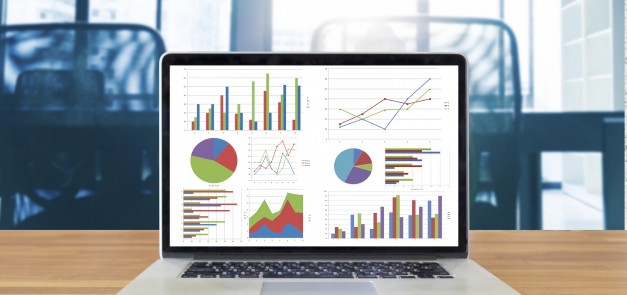How much time and money do you spend on manual reporting, collating spreadsheets and pulling information from various sources, only to be left still not seeing the big picture?
All medium to large sized business owners face this at one time or another. At some point, you would have had to gather information to produce a report, perhaps for an advisor, perhaps for your bank.
Understanding which reports will actually help you understand your business better is crucial.
Here are the top five essential reports for any business’s operation.
1. General Ledger
The General Ledger is a record of every transaction relating to your company, including sales, debtors and creditors, expenses and equity.
It’s the primary source of information to gauge your business’s health, so it should be looked at frequently.
If your accounting software requires the report to be run at the end of a month, it may not be possible to look at it frequently. Using an ERP system lets you run this report more frequently, getting a more up to date picture on the current stage of your business.
2. Profit & Loss
The profit and loss statement helps you to quickly understand the current position of your company.
Profit and Loss statements are required by law to be produced for all public and larger proprietary companies and must adhere to the Australia Accounting Standards.
The key to profit and loss reports is comparison and analysis of periods against one another. The most common being a year-on-year or quarter-on-quarter review. An ERP not only displays these comparisons but allows you to drill into the detail on any of those periods without the need to load up previous files or backups.
This gives businesses a key advantage by not only seeing any potential changes, but understanding what drove them without having to manually search for that information.
3. Sales reports
In its most basic form, a sales report should allow a salesperson to know what their target is, where they are at and what’s forecasted to come in. A sales manager should be able to see all of that for every sales person, at any time as well.
Having all of that sales information in one system combined with relevant information like stock levels, pricing and order history means generating sales reports is not only easy, but accurate as well.
You’ll be able to see how each sales person’s pipeline is looking, what sales are due to close shortly and what has already sold. This insight is very powerful when transitioning your business from being reactive at the end of each month to being proactive and planning months in advance, generating more sales, increase turnover and ultimately improving profits.
4. Profitability on jobs and/or projects
Many industries and businesses, including engineering, manufacturing, professional services and not for profits, benefit from job-by-job profitability analysis.
Generally accounting software will allow you to collate the information after the job is complete and do a basic analysis of total cost of goods/labour against the total revenue, giving you the profit of that job.
Medium-sized and larger businesses could benefit by instantly seeing how profitable a job is while it in progress. This type of insight changes how a business operates and goes from re-active to pro-active. You know if a job is running behind schedule, or costs have escalated. You are now in a position to change this and ultimately the outcome of the job. An ERP system like MYOB EXO has a complete job and project costing solution designed to accommodate the whole life cycle of a job and put you in control of your business.
5. Forecast
Forecasting is the ability to ‘almost’ predict the future. For most mid-sized businesses using standalone accounting software, this is all but impossible. By the time you get the information you need, weeks or sometimes months have passed.
Accurate reporting is critical for businesses as they need to understand which of their products are slow moving and which move quickly. With proper visibility, it’s possible to see immediately which products are most profitable and which need replacing, which isn’t something that can be easily done by combing through lines of entries on a spreadsheet. A system capable of analysing historical data and comparing like for like over a particular period of time is needed.
With the right business management system you can spend your time looking after your business instead of looking for information. Business management systems allow businesses to report on almost any aspect of their business – from daily sales figures, to commissions owed to external sales agents. The best ones allow you to drill down to almost any level of detail, but also serve up snapshot views for quick reference.
To find out how an MYOB ERP System can help your business, contact us on (07) 5479 1877
To read the full story, click on the whitepaper below. Source: MYOB
